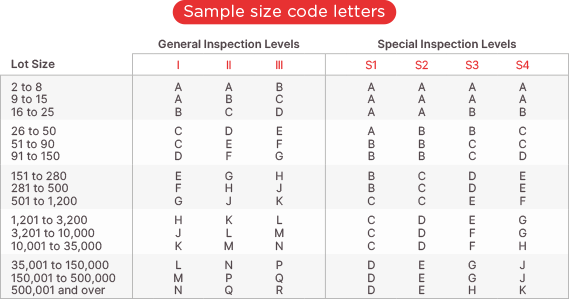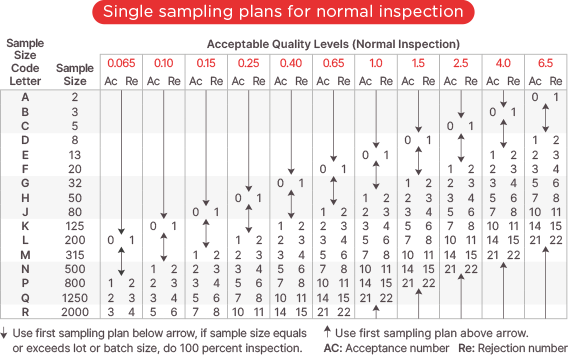Understanding the Concept of Acceptable Quality Limit (AQL)
The Acceptable Quality Limit, commonly known as AQL, is a globally acknowledged benchmark employed for all product evaluations. This standard allows clients to establish their own Acceptable Quality Tolerance level for each inspection, and Qualityloyal Inspecction Service (QIS) will subsequently provide results indicating whether the product is within or exceeds the AQL.
The Role of AQL in Sampling Inspection
During the process of sampling inspection, QIS inspectors adhere to the ISO 2859 standard along with the tables it offers. This document, issued by the International Organization for Standardization (ISO), is a global standard with counterparts in all national regulations, including ANSI/ASQC Z1.4, NF06-022, BS 6001, and DIN 40080.
The AQL Sampling is a widely utilized method to define a sample from a production order to ascertain if the entire product order aligns with the client's specifications. The AQL standard, based on the sampling data, aids the customer in making an informed decision to either accept or reject the lot.
Determining the Appropriate Sample Size and Acceptance Number
Our team of experts is available to guide you in selecting the inspection level and AQL values that best cater to your requirements.
To illustrate how this works, let's consider a scenario where you have to carry out an inspection for 4000 pieces of face masks. The client has chosen a normal inspection - level II and AQL and 2.5. You can use our sampling calculation tool to test out your product inspection AQL.
Table A
Find the respective Lot Size (quantity) and general inspection level.
Note: AQL tables below are based on ANSI/ASQ Standard Z1.4 – 2008

Table B
Locate Row L (this is the required sample size of 200)
Complying with AQL 2.5, no more than 10 units from that sample size can fail the inspection.


Leave a comment
Please note, comments must be approved before they are published